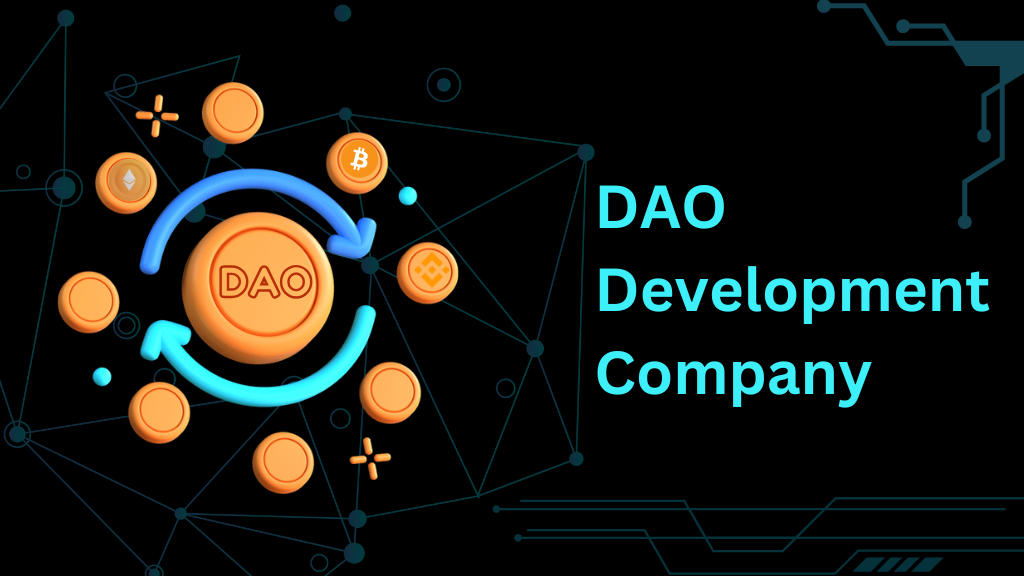DAO (Decentralized Autonomous Organization) development is centered on creating organizations that are governed by code and community consensus rather than traditional hierarchical structures. Here’s a comprehensive overview of DAO development, covering the essentials, use cases, benefits, and development process:
What is a DAO?
A DAO, or Decentralized Autonomous Organization, is a blockchain-based entity that operates through smart contracts, allowing members to vote on decisions, manage resources, and govern collectively without central authority. DAOs use blockchain technology to ensure transparency, security, and autonomy, as well as decentralize decision-making processes.
Core Components of a DAO
The core components of a DAO (Decentralized Autonomous Organization) are essential building blocks that enable decentralized governance and functionality:
- Smart Contracts: The foundation of a DAO, smart contracts encode the rules and guidelines, automating key functions like voting, fund distribution, and proposal management.
- Governance Token: DAOs often issue tokens to represent voting power. Members with governance tokens can participate in voting, propose changes, or fund projects.
- Voting Mechanism: Voting is usually conducted on-chain, using mechanisms such as one-token-one-vote, quadratic voting, or reputation-based voting.
- Treasury: DAOs maintain a treasury to fund initiatives. The treasury is usually controlled by the DAO members, and funds are released only through collective agreement.
- Community and Stakeholders: DAO members may include investors, developers, and users who contribute to the DAO's activities and direction.
Each component works in tandem to establish a DAO that is autonomous, transparent, and democratically governed by its members. Together, they ensure that the DAO operates without central authority, providing a decentralized structure for collective decision-making.
Types of DAOs
- Protocol DAOs: These manage decentralized protocols (e.g., MakerDAO for lending).
- Investment DAOs: Community-driven investment pools (e.g., The LAO for venture investments).
- Service DAOs: Provide services like development or marketing (e.g., RaidGuild).
- Grant DAOs: Fund open-source projects or community-driven initiatives (e.g., GitcoinDAO).
- Social DAOs: Focus on community building and social interaction (e.g., Friends with Benefits).
DAO Use Cases
- DeFi: Managing decentralized finance protocols and platforms, lending, and staking.
- Venture Capital: Community-led investing in early-stage crypto projects.
- NFT Curation and Management: DAOs are used for buying, curating, and managing NFTs.
- Social Impact and Philanthropy: DAOs can be structured to support charitable causes or fund social initiatives.
- Community Governance: From fan clubs to alumni groups, DAOs empower communities to self-govern.
Benefits of DAOs
- Transparency: All transactions and decisions are on-chain, visible to all members.
- Decentralized Governance: Prevents centralization by giving each member voting rights.
- Global Accessibility: Members from any part of the world can participate.
- Automation: Smart contracts streamline operations, reducing administrative overhead.
- Community-Driven: Decisions are based on the consensus of the entire community, ensuring alignment with members' interests.
Challenges of DAOs
- Regulatory Compliance: Lack of clarity around legal recognition and compliance.
- Security: Smart contracts are vulnerable to hacking if not coded securely.
- Coordination Costs: Managing large groups and achieving consensus can be challenging.
- Governance Issues: Low voter participation, whale domination (large token holders having a disproportionate influence), and governance attacks.
DAO Development Process
- Ideation and Planning: Define the purpose of the DAO, structure, tokenomics, governance model, and community-building strategies.
- Smart Contract Development: Develop smart contracts that control membership, treasury management, and voting.
- Token Creation: Issue governance tokens if required, enabling members to vote and participate.
- Platform Development: Build a front-end platform or dApp for easy interaction with the DAO’s smart contracts.
- Governance Implementation: Develop and test the voting mechanism, proposals, and decision-making processes.
- Community Engagement: Community involvement is key to DAO success. Build a core community and encourage participation through incentives, communication, and transparency.
- Launch and Testing: Deploy the DAO on a blockchain (Ethereum, BNB Smart Chain, or others), test all functionalities, and ensure security.
- Security Audits: Conduct rigorous audits to ensure smart contract security and avoid potential vulnerabilities.
- Continuous Improvement: Gather community feedback, monitor on-chain activity, and make iterative updates based on members' needs.
Popular DAO Development Platforms and Tools
- Aragon: Provides a framework for creating DAOs on Ethereum.
- DAOstack: Offers tools for developing, deploying, and managing DAOs.
- MolochDAO: Known for simple governance and membership structures.
- Colony: Specializes in collaboration-focused DAOs with an emphasis on project-based work.
- Snapshot: Off-chain voting system widely used in DAOs for flexible and gas-free voting.
- Gnosis Safe: Multi-signature wallet solution for DAO treasuries.
- OpenZeppelin: Audited smart contract libraries to improve DAO security.
Legal and Regulatory Considerations
Legal recognition of DAOs varies across jurisdictions. Some areas view them as traditional companies, while others recognize their unique structure. Regulatory considerations include:
- Compliance: Regulatory compliance for token issuance, financial transactions, and member protection.
- Liability: Defining the liability of members and core contributors to avoid legal repercussions.
- KYC/AML: Some DAOs implement KYC to ensure regulatory adherence, especially in investment DAOs.
Key Metrics for Evaluating DAOs
- Member Growth: Indicator of engagement and community interest.
- Treasury Size: Financial health and capability to fund projects.
- Voting Participation: Active involvement in governance decisions.
- Proposal Approval Rate: Reflects the community consensus.
- Token Performance: If the DAO has a governance token, its value can indicate member confidence and growth potential.
Future of DAOs
DAOs are evolving toward becoming a mainstream organizational structure, particularly in Web3, DeFi, and metaverse projects. As legal frameworks develop, DAOs are likely to expand in the areas of enterprise governance, global organizations, and as tools for social good.
If you're looking to build a Best DAO platform. Then join hands with well well-experienced DAO Development Company. working with experienced developers is crucial, as ensuring robust security measures, and building a committed community for long-term success.
Contact:
Ready to bring your DeFi to life? Reach out to the team at
WhatsApp - +91 9500575285
Email - [email protected]





Comments